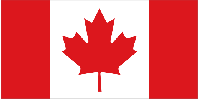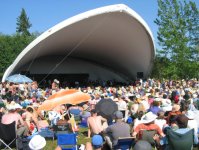Winnipeg is the capital
and largest city of Manitoba, and is the primary municipality of
the Winnipeg Capital Region, with more than half of Manitoba's
population. It is located near the longitudinal centre of North
America, at the confluence of the Red and Assiniboine Rivers, a
point commonly known as The Forks. The name "Winnipeg"
comes from the Cree for "muddy waters". The Winnipeg
area was a trading centre for Aboriginal peoples prior to the
arrival of Europeans. The first fort was built there in 1738 by
French traders. A settlement was later founded by the Selkirk
settlers in 1812, the nucleus of which was incorporated as the
City of Winnipeg in 1873 with a population of 1,869.
Winnipeg has a
diversified economy, with sectors in finance, manufacturing, food
and beverage production, culture, retail and tourism. Winnipeg is
a major transportation hub, served by Richardson International
Airport. The city has railway connections to the United States
and Eastern and Western Canada through three Class I rail
carriers. Winnipeg's cultural organizations include Opera,
Ballet, Symphony Orchestra, Museum, Art Gallery and Le Cercle
Molière. Popular festivals are the Festival du Voyageur, Folk
Festival, Jazz Festival, Fringe Theatre Festival, and Folklorama.
< Back to the index










